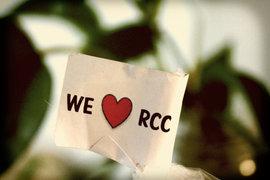
What would you do if the only full-service grocery store in your community suddenly closed? When this misfortune fell upon the residents of northeast Greensboro, North Carolina, they took matters into their own hands and mobilized to build a community-owned store.
After the 1998 closure of the Winn Dixie that had served northeast Greensboro for decades, the area transformed into a food desert. Regional competition from retailers such as Walmart and Food Lion encouraged the grocery chain to consolidate—closing even its profitable locations. Overnight, the plight of living in a food desert became a distressing reality for many families.
Northeast Greensboro became one of several communities across the nation with limited access to food, commonly described as food deserts. Food deserts are defined as residential areas with a high level of poverty, where at least 33 percent of residents live more than a mile from a full-service grocery store. The USDA estimates that of the 23.5 million people living in food deserts, 13.5 million are low-income. Often, this burden is carried by black communities. White neighborhoods contain an average of four times as many supermarkets as predominantly black neighborhoods. Moreover, grocery stores in African-American communities are usually smaller and have of a more narrow food selection. Greensboro, with a 41 percent black population is no exception. The city is a host to 17 food deserts.
Northeast Greensboro residents knew that the lack of healthy food opportunities would have to be addressed. “We really just need a grocery store,” community member Brenda Hughes told a local news station. “I need a grocery store where I can just walk. It’s more convenient for me to have a grocery store right here in the neighborhood.”
Residents fought for nearly fifteen years to attract a corporate chain to the community. Though unable to increase access to healthy foods through their initial efforts, the community eventually triumphed. In 2012, residents formed the Renaissance Coop Committee (RCC) and began educating themselves on the responsibilities and benefits of a community-owned grocery store. They studied membership structures, democratic governance, financing, accounting, and other key elements of launching and sustaining a cooperative grocery store. Thus far, RCC has recruited 300 residents, who have each invested $100 to become member-owners in the expected cooperative grocery. Residents celebrate, in just a few months, its new cooperatively owned and managed grocery store, the Renaissance Community Co-op.
Renaissance Community Co-op entitles the community not only to healthy food, but also to self-sufficiency. “With a cooperative like the one we’re trying to establish the money goes back into the community,” steering committee member, Sadie Blue proclaimed at a city council meeting. “We have a vested interest. It’s our store, and we have the ability to make the store fit the needs of the people in that community.”
Key to Renaissance Community Co-op’s success has been the community’s ability to collaborate. RCC received technical assistance from the Fund for Democratic Communities (F4DC), a foundation that supports democratic, community-based initiatives and institutions. F4DC’s support enabled RCC to develop detailed financial projections, to commission a professional market study, and to reach out to the community to build an engaged, informed base of members. RCC also received assistance from Self-Help Ventures Fund, an affiliate of Self-Help Credit Union. Through Self-Help, RCC was able to buy the $490,000 building formerly owned by Winn-Dixie. Recently, RCC was awarded $250,000 grant from the city of Greensboro. Having raised almost $1.2 million, RCC is just $600,000 short of the estimated $1.79 million needed to open the store and hire staff.
Communities like northeast Greensboro demonstrate the power of communities of color to invest in their communities and to develop their own economic future without relying on corporations. In an interview, RCC organizer and co-op member James Gibson stated, “This is a project that doesn’t necessarily fall into the realm of what people imagine is possible when they think about wealth building or asset building. The fact that this community had a vision, identified partners to work with, and then pursued that vision and are now on the cusp of realizing it, speaks to the power of communities to do whatever they put their minds to.”
RCC joins the ranks of other great cooperatively owned grocery stores building community wealth in low-income areas, like the Mariposa Food Co-op in Philadelphia, Mandela Foods Cooperative in San Francisco, and the Detroit Black Community Food Security Network . They point to the potential of alternative ownership structures to build both just food systems and locally based and controlled capital.